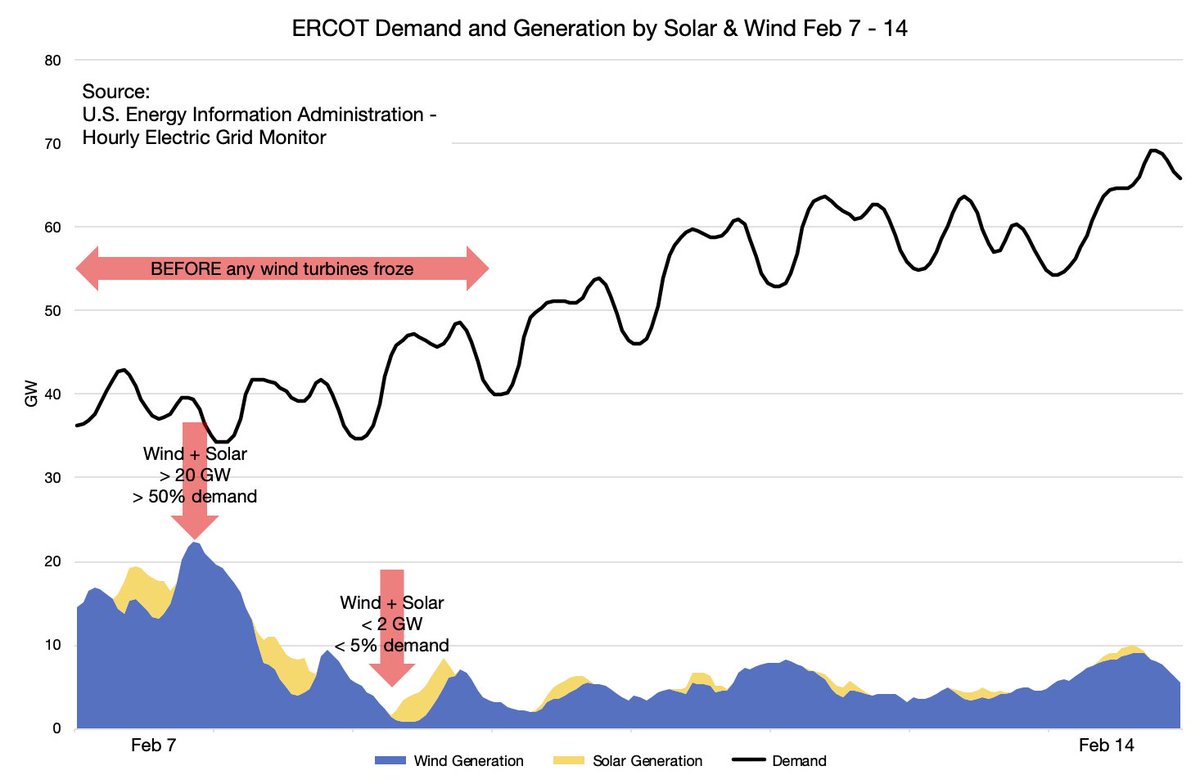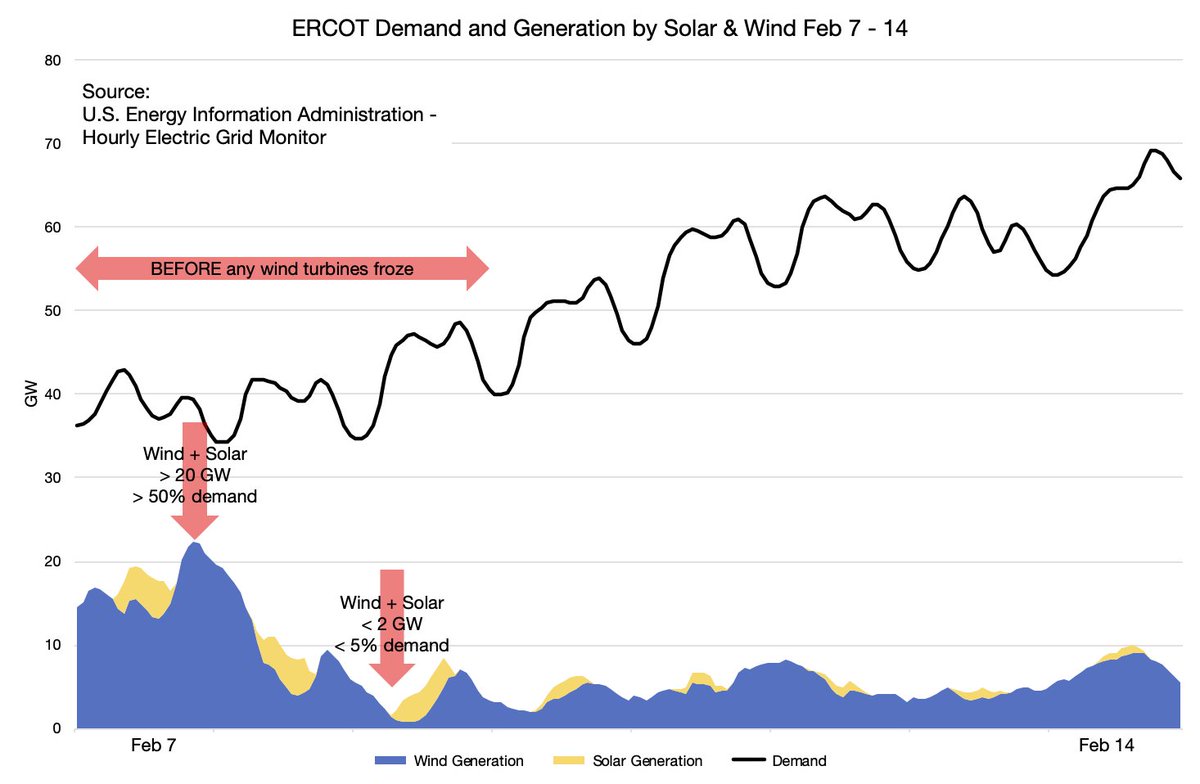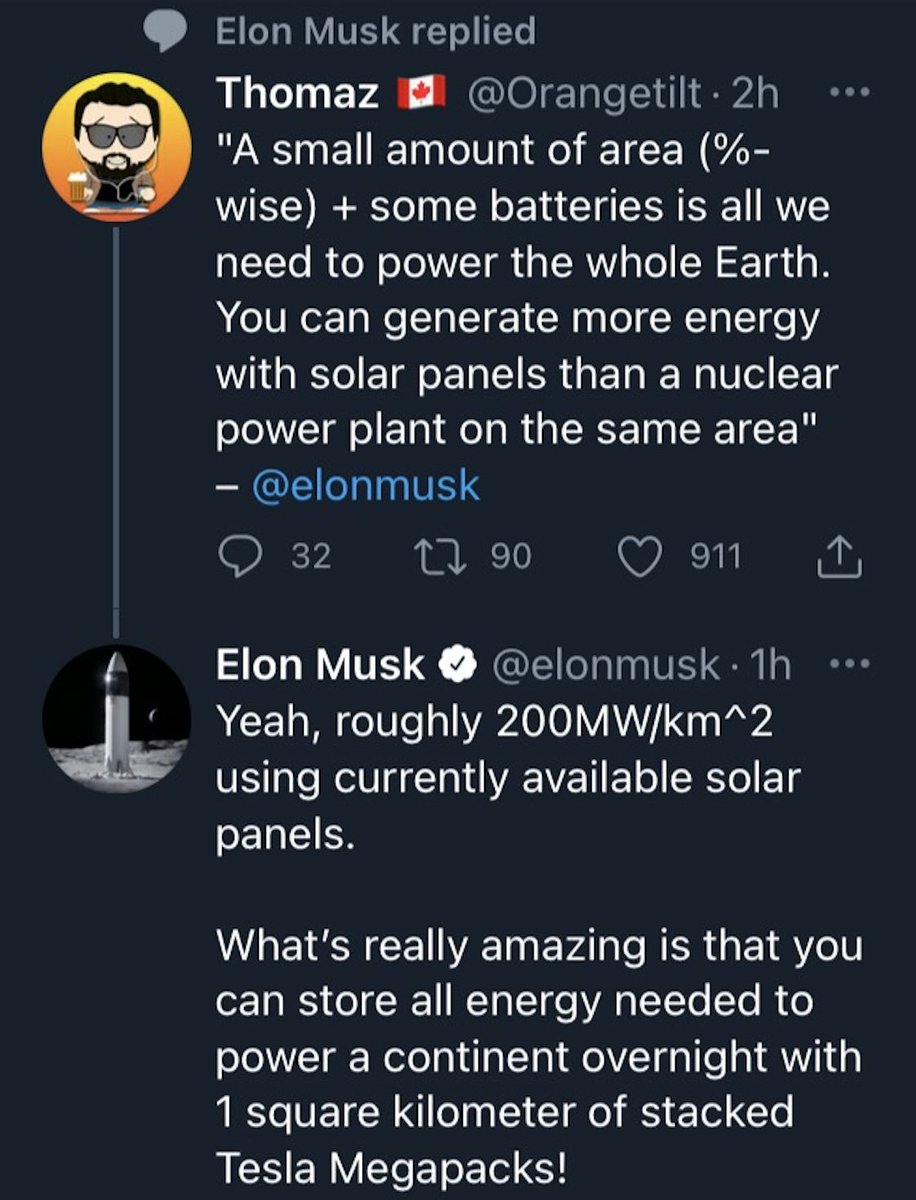
The Biden administration is using the recent hacking of the Colonial Pipeline to portray oil as an insecure fuel that needs to be replaced by electricity. In reality, Biden's scheme of mandatory EVs on a wind-and-solar-dependent grid would be catastrophically insecure.
THREAD
THREAD
The empty gas stations all over the East Coast in the wake of the hacking of the Colonial Pipeline have brought energy security to the forefront of our minds. Many wonder: How can we prevent this, or something worse, from happening again? The worst answer is: mandatory EVs.
It's important to note that even with the weeklong disruption of a pipeline that transports 105 million gallons of fuel daily, there has still been enough gasoline available to meet normal gasoline demand. The empty gas stations have come from media-induced panic-buying.
Today's oil transport system could be even more resilient and adaptable were it not for numerous irrational government restrictions on transport--such as the Jones Act restrictions on ships--as well as anti-development opposition to numerous pipelines and local refineries.
Contrast the small, preventable shortages of the Colonial Pipeline disruptions with the absolute and deadly disaster of the recent Texas blackouts--where millions of people's lives were stopped and endangered for days, with countless lives saved by gasoline vehicles.
The relative lack of damage from a massive pipeline disruption compared to a massive electricity disruption illustrates the security of oil fuel supplies. Because oil fuel is so "energy dense" it is cheap to store for a rainy day, as well as cheap to transport in alternate ways.
Because oil fuel is so energy dense, it can be moved many different ways to any given location: by pipe, train, truck, and by sea. By contrast, when the electrical grid shuts down there is no alternative supply route for a given location to get electricity.
Despite the fact a massive pipeline disruption led only to problems that were mostly preventable as well as tiny compared to electricity disruptions, Energy Secretary Granholm portrayed EVs as a solution: "if you drive an electric car, this would not be affecting you, clearly."
Not only are EVs inherently more vulnerable to supply disruptions than gasoline vehicles--because electricity infrastructure is far more fragile than versatile, adaptable oil transport infrastructure--this administration's policies are making electricity artificially fragile.
Two essentials of the Biden energy policies are mandating EVs, then mandating that the grid be powered mostly by unreliable wind turbines and solar panels that cannot handle today's electricity needs, let alone the far greater needs of an EV-filled grid.
The Administration's "80% clean energy by 2030" goal would require over 50% wind and solar on the grid.
That's twice what Texas has today--and let's not forget how wind and solar disappeared during the Texas freeze, when they were needed the most.
energytalkingpoints.com/clean-future-a…
That's twice what Texas has today--and let's not forget how wind and solar disappeared during the Texas freeze, when they were needed the most.
energytalkingpoints.com/clean-future-a…

Imagine if, during the recent freeze, Texas was far more dependent on unreliable solar and wind--and it had a massive fleet of EVs that needed charging. The blackouts would have lasted for weeks. That's what the Biden administration has in store for us. 

Consider the case of Germany, where at 37% solar and wind, the idea of “peak smoothing” is making its way into law. This would allow electricity providers to shut down consumers like EV charging stations and heat pumps to keep them from collapsing the grid.
The proper policy toward EVs is to let them compete on the open market with gasoline vehicles, natural gas vehicles, hydrogen vehicles, etc. And if you want to increase the competitiveness of all EVs, then stop screwing up the grid by mandating unreliable solar and wind.
The number one challenge to the long-term cost-effectiveness of EVs is providing the massive amounts of additional electricity needed to power EVs with low cost and high reliability. If you want to do that with lower emissions, you need to liberate reliable nuclear energy.
The key to low-cost, reliable, secure energy is energy freedom. Producers need to be free to produce and transport energy in whatever ways they judge best, and we as consumers need to be free to choose the options that are best for us.
This Administration's plan of mandatory EVs on a mandatory-wind-and-solar grid is a recipe for national immobility. Let's use the pain of this week's gasoline shortages to inspire us to fight against this terrible plan--and for energy freedom, flexibility, and security.
For more on energy freedom check out EnergyTalkingPoints.com.
• • •
Missing some Tweet in this thread? You can try to
force a refresh




